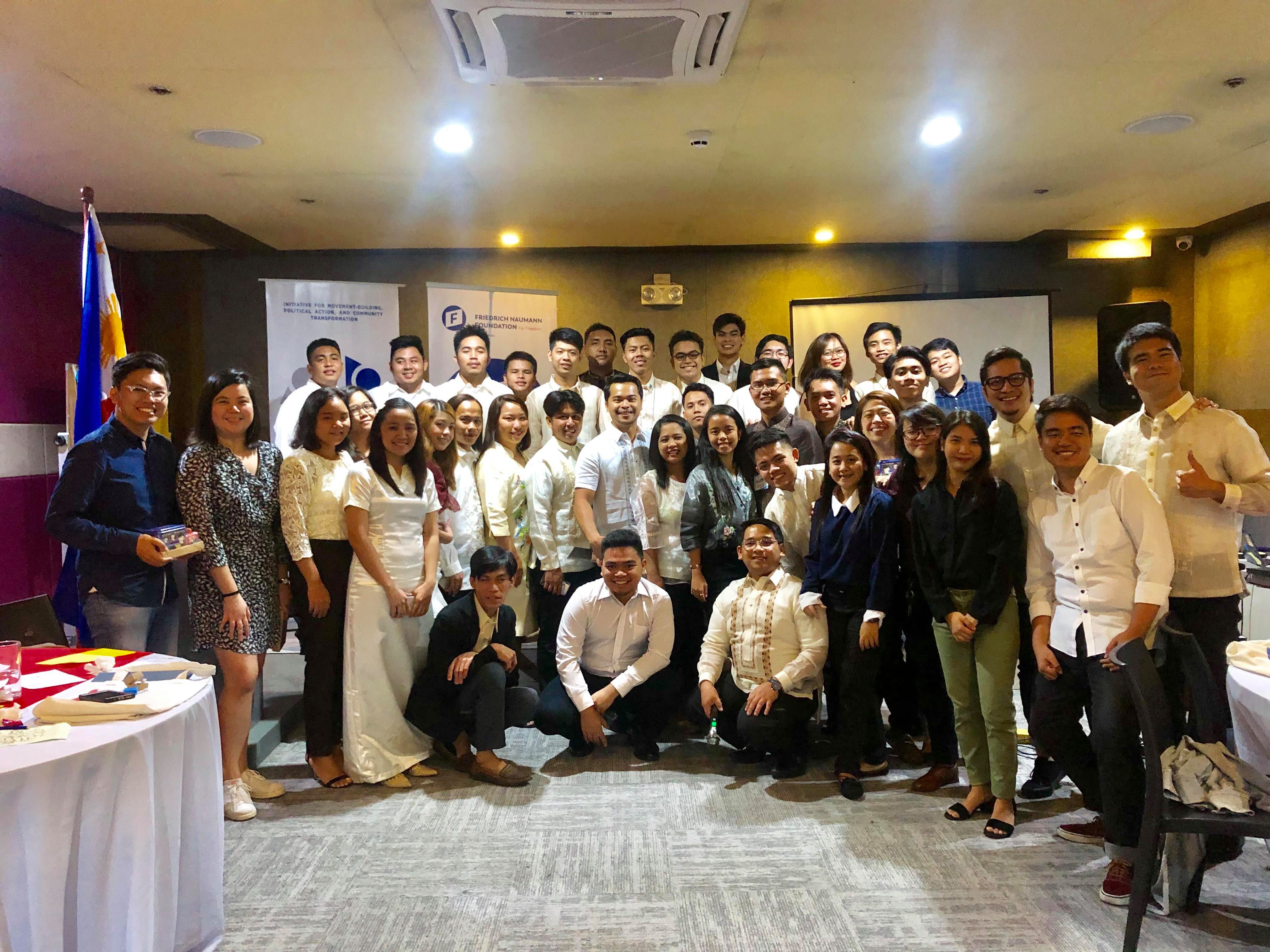First +iMPACT Leadership Conference Molds Filipino Young Leaders
The first +iMPACT leadership conference served as a platform for 30 youth ambassadors to acquire ideas that they could build on and broaden their networks to create an impact on their communities. This three-day gathering on 19-21 July 2019 was the culminating activity of the +iMPACT fellowship program that began in February 2019.
Through the inspiring talks conducted by the reputable political leaders and members of the civil society who graced the event, the participants became more aware on the realities of being a youth leader.
The +iMPACT Leadership is an organization formed in 2018 devoted to building the nation by shaping the next generation of transformational leaders who will have a positive impact on their local communities. Members, whose ages range from 18 to 24 come from various parts of the Philippines.
Organized by the Friedrich Naumann Foundation for Freedom (FNF) and the Initiative for Movement-building, Political Action, and Community Transformation Leadership (+iMPACT Leadership), the conference was held at the Axiaa Hotel in Cubao, Quezon City.
“Major movements that changed the history in the Philippines and in the world have been initiated by the youth,” said Sen. Francis “Kiko” Pangilinan in his opening speech.
He stressed that the Filipino youth is not politically apathetic. Their role in societal transformation is crucial, he said, thus they must be encouraged to use their energy to translate the broad concept of democracy into action.
Wolfgang Heinze, head of FNF Philippines, highlighted the importance of learning their history by heart to be able to counter authoritarianism and strengthen democratic ideas such as good governance, human rights, and equality of opportunity.
“A regime that relies on fear and intimidation does not last. There is hope. You are the hope,” he said.
Martial law
Former member of the House of Representatives, Erin Tañada, shared his experience as a youth leader during the martial law years in the1980s.
Yung mga pinaglalaban natin noong dekada ’80, pareho rin hanggang ngayon. Pwede po nating sabihin na “Bakit pa?” “Para saan?” o “Pagod na!” Pero parati ko po sinasabi na dapat ay sikapin nating maging mas mabuti kesa sa dati. (We are still fighting for the same cause since the 80s. We ask, “Why? “What for?” Or we can just give up altogether. But I always say we should always strive to be better than we were.)
Similarly, Commission on Human Rights Chairperson Chito Gascon shared his setbacks and big wins as a young leader during the Marcos dictatorship. However, he acknowledged that times are different now.
“The glory days of the past are gone. Democracy is facing new challenges at a global level,” he said. He reiterated the need for a new breed of committed citizens to promote freedom.
Advocacy communication
Communications experts guided the young leaders to communicate their advocacies innovatively and effectively in an era where credibility is always a question because of the noise brought by of fake news and disinformation.
Minnie Salao of the FNF introduced new technological platforms such as the slido app, kahoot.it, and the Facebook artist that can be used as tools to attract more audiences. However, she pointed out that these should not be the end but rather the means. "Innovation is not just about being digital. You are the innovative solution,” she said.
She emphasized the need to focus on the message, the feeling and the audience because this would make the advocacy more authentic.
Chel Arenas, from Bantay Bata 163, urged the participants to listen sincerely and speak the language of the listener to effectively relay their messages.
This session helped them formulate a project pitch as their culminating activity. One of which is the human rights film showing where visual communication will be used to engage the youth on violations in the Philippines innovatively.
Talk the talk, walk the walk
Though identifying the ways on how the message of freedom could be spread, it is equally essential to translate this into concrete actions. The speakers motivated young leaders to speak up and get things done.
“We should be listening to see the needs and have a clear way to fill it in,” said renowned director Pepe Diokno. He mentioned that the purpose of listening is to be able to fill in the gaps and not to confirm our own biases.
Marco Preissinger, member of the Federal Executive Committee of the Young Liberals of Germany, reiterated that the youth should e in the forefront of change. “We have the ability to push boundaries. If you are willing to change something, you can change everything,”
Being a catalyst of change could be difficult especially when the threats of democracy continue to strike, but the Former Chief Justice Maria Lourdes Sereno would like to be proven wrong.
She said that the youth’s voice is important as it becomes a retardant to evil. “Injustices arise because people do not oppose it, so, speak up! Objection to evil reduces evil,” she highlighted.
In the end, the participants’ morale was boosted through the inspiring stories and ideas brought by their “role models” and felt more motivated than ever to work on building a progressive, inclusive and innovative communities.
